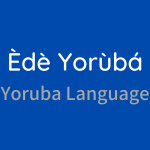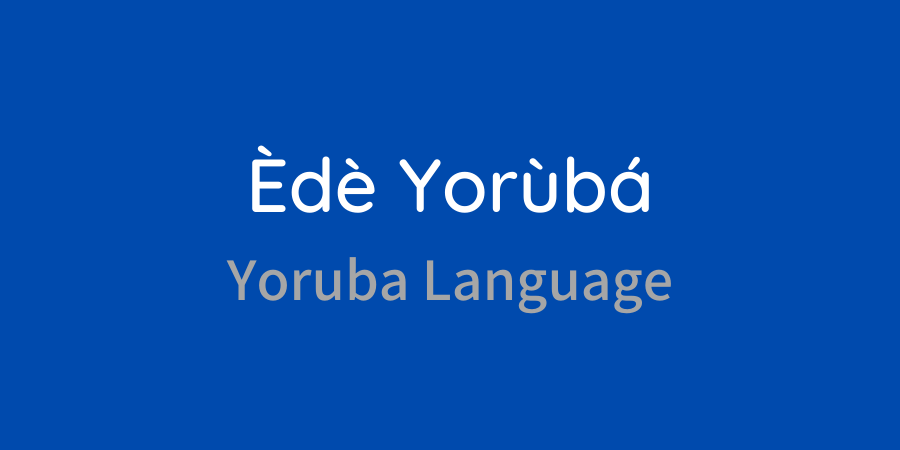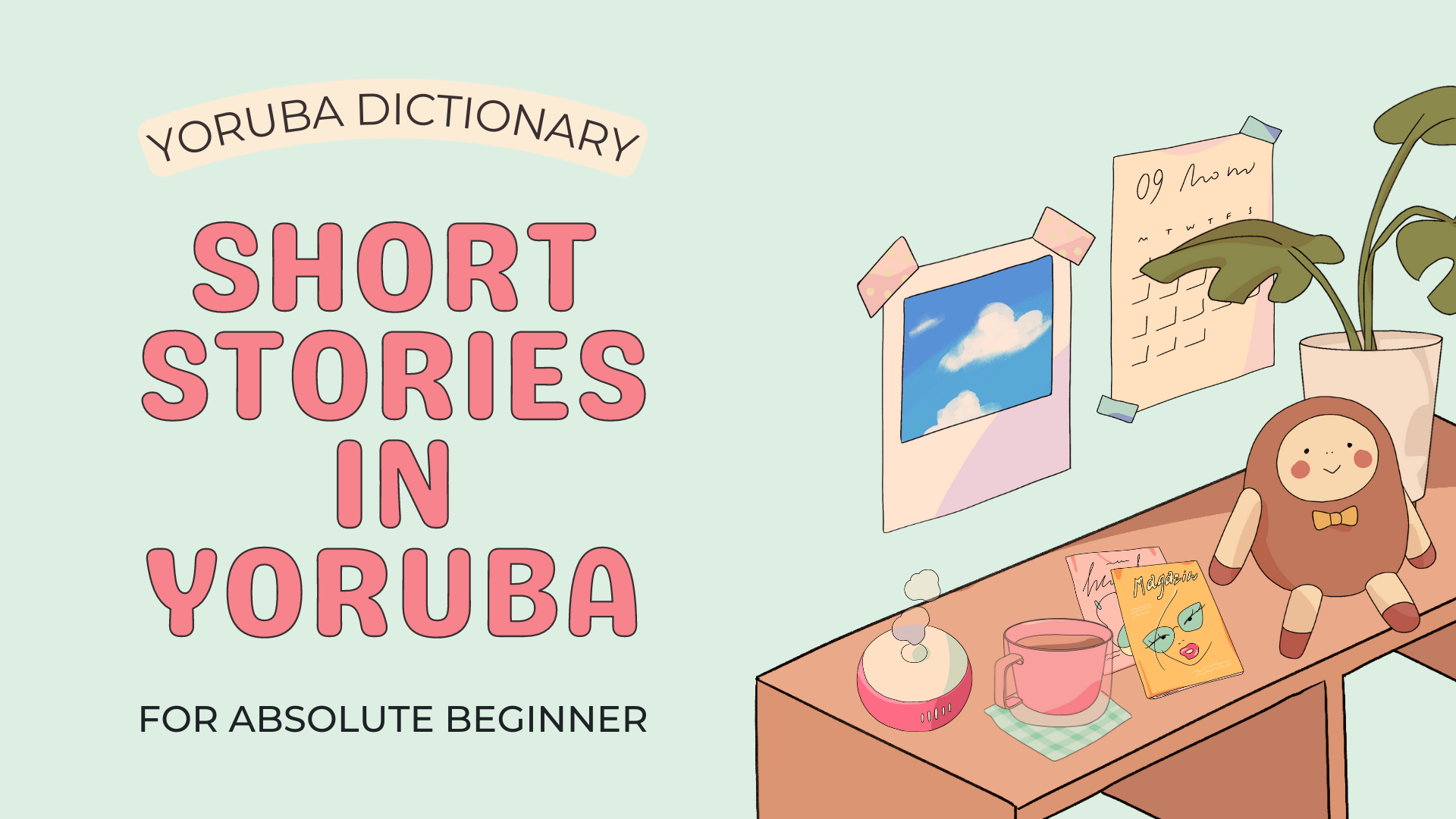
Learn Yoruba for Beginners – Lesson 3 : Pronouns in Yoruba – Subject pronoun
Introduction
Hello Yoruba language learners! In this blog post, you will be learning, as I am currently, how to express certain pronouns in the Yoruba language. Although not all forms of pronouns will be addressed in this post, i.e. object pronouns, reflexive pronouns etc., the focus is subject pronouns. For those who have left primary schools years ago, subject pronouns are the pronouns that perform the verb or action. They are the subject of the verb in said sentence. Additionally, they help to prevent redundancy when used to replace aforementioned subjects. Okay, let’s go!
I
This is very simple.
Examples
I went.
Mo lọ.
You
Just as we learned in my previous post, respect is a very essential aspect of Yoruba culture. Consequently, this also affects the pronouns to be used.
When addressing an elder or someone older, please refrain from using “O”. Instead, use “Ẹ”. For example:
Examples
You eat.
Ẹ jẹun. (formal/honorific)
O jẹun.
He/She/It
Since these pronouns only differ in gender, they are practically used in the same format. Furthermore, there are honorific pronouns in the case of referencing someone older than you. So please keep this in mind.
Examples
Honorific pronouns
He stood up.
Wó̩n dìde.
I stood up, she sat down.
Mo dìde, Wó̩n jókòó.
It is bad.
Wó̩n burú
Informal pronouns
He stood up.
Ó dìde.
I stood up, she sat down.
Mo dìde, Ó jókòó.
It is bad.
Ó burú.
We
This first-person plural pronoun is even more simple to express in Yoruba than the pronoun “I”.
Examples
We danced.
A jó.
They
The pronoun confused me a bit because it is exactly the same as the honorific pronoun for “she/he/it”. But language learning is almost always perplexing. I am yet to read of a separate honorific form of this pronoun, but If you know it, please do not hesitate to mention it below. Anyway the following is an example:
Examples
I ate, you came, she went, they slept.
Mo jẹun, O wá, Ó lọ, Wó̩n sùn
Hope you enjoyed this very informal post. Please, every suggestion or correction is welcomed and appreciated. Thank you! See you in the next post.
Editor notes
I am also a beginner in Yoruba, so please bear with me.
References
- Colloquial Yoruba: The Complete Course for Beginners
- Basic Greetings In Yoruba, Part1
- The Basics on Subject and Object Pronouns
- Subject Pronouns






